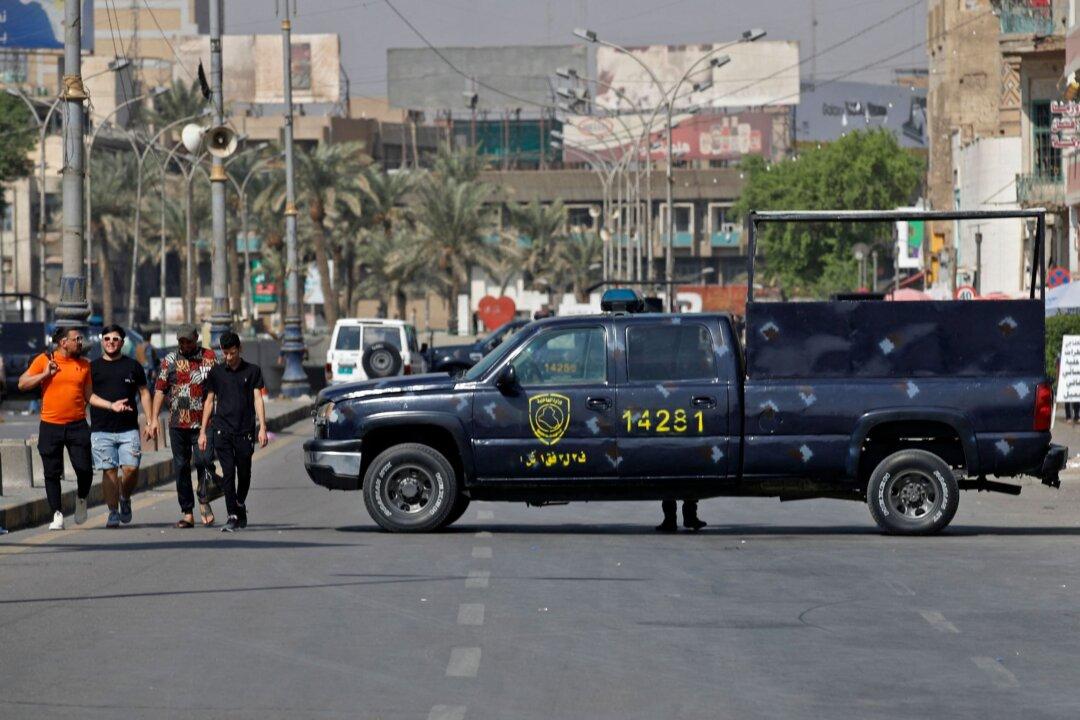BAGHDAD—Nine rockets landed on Thursday around the Iraqi capital’s Green Zone, home to government buildings and foreign missions, the military said, shortly before parliament began a session to elect a new president amid a protracted political deadlock.
Several members of the security forces were injured in the attack, the military statement said without giving more details.





